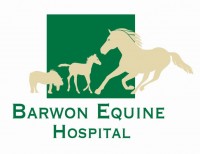At Barwon Equine Hospital we have the ability to perform routine dental examinations, floating of teeth and wolf tooth extractions. Dental care is extremely important and an area which deserves veterinary involvement and expertise. Poor dental care can lead to impaired performance from your horse, preventing it from performing to the best of its ability and prolonging unnecessary pain.
Engaging in routine dental care can:
- Prevent premature tooth loss.
- Address abnormal wearing of the teeth due to poor conformation, prior trauma or stereotypical behaviors e.g. windsucking.
- Improve feed utilisation and prevent weight loss.
- Reduce the incidence of choke and colic.
- Alleviate mouth and jaw pain
- Improve acceptance of the bit, making it easier for your horse to be trained.
- Extend the life expectancy of your horse.
Dr Alice Curran has completed postgraduate studies and training in equine dentistry ensuring safe examination and treatment of your horse. A thorough routine dental examination will involve the assessment of the teeth and surrounding soft tissue structures. This involves the use of a full mouth gag, a light source and a mirror. Sedation can help to relax the muscles of the jaw facilitating access to, and visualisation of, the teeth at the back of the mouth. Dental procedures are performed with both motorised and non-motorised equipment. A comprehensive dental chart and record is completed for every examination completed.
A dental health examination is recommended for most horses, however younger and elderly horses can benefit from checking every 6 months. Some horses with abnormalities may require more frequent care. Regular checkups allow for early recognition and prevention of dental problems and can be combined with other routine work such as vaccinations.
We are best equipped to perform dental examinations at the clinic in our crushes, however they can be performed on farm in some cases. Where head and sinus x-rays are useful to inform on the presence of jaw or tooth root infections or fractures, these can be taken using our digital radiography equipment. Images can be viewed and sent to specialists immediately. Where more complicated procedures are required, we have the ability to refer and organise treatment by specialist equine dental vets.
